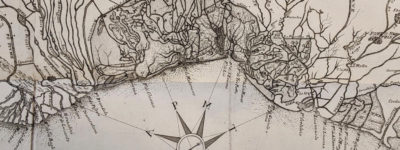Venice’s Domestic Archipelago: The Lagoon Urban Dynamics in a Digital Infrastructure

From the 16th century, Venice became critically conscious of the granular nature of its hinterland, constructing a governance that involved the cluster of over 60 islands forming its water fringes. More than an ornamental frame or neutral space for the city, lagoon sites served as structures for the political, socio-economic and cultural needs of the State. They were spiritual places for welcoming religious communities, centres for housing fortified outposts and hospitals, spaces for state lodging services, as well as fertile territories for new architectural design. The fall of the Republic (1797) profoundly changed this understanding and altered the reading of the city as an organic entity that encompasses the watery ecosystem.
The “Archipelago project” reconstructs and visualizes the ancient configuration of these places and the relationships that once defined the Venetian lagoon through a transdisciplinary approach, which combines history, architecture, social studies and semantic web technologies. This entails the development of a geospatial and time-based research infrastructure that enables the intersection of historical data with georeferenced maps and digital reconstructions to express the urban processes that shaped the city.
Chair: Alessandro Paris, FBK-ISIG
Scientific coordination:
Massimo Rospocher, FBK-ISIG
Sandra Toffolo, FBK-ISIG
Enrico Valseriati, FBK-ISIG
Cycle of seminars: “Tavola ovale di storia moderna”
The event will be held in English
The presentation will take place online
To connect to the event, registration is required by Wednesday 27 April 2022 at 12.00 am
During the meeting, the webcam and microphone will be disabled to avoid network overloads
***
Immagine: Biblioteca FBK, D 838178 s-ar 2 E 13
Guest Speakers
-
Ludovica Galeazzo is an architectural and urban historian whose research focuses on Venetian architecture in the early modern period with a special interest in new technologies. She received her PhD in Architectural History from the Graduate School Ca’ Foscari-Iuav in Venice and was later a Research Fellow at the Iuav University, Postdoctoral Associate at Duke University, and Kress Fellow in Digital Humanities at I Tatti (Harvard University), where she continues to hold an appointment as a Research Associate.
Registration
Registration to this event is mandatory.
Registration closed on 27/04/2022.